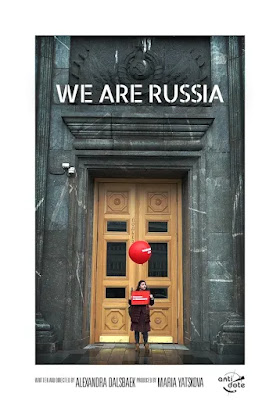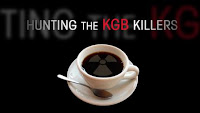It wrapped filming on-location in St. Petersburg the day before Putin’s illegal invasion of Ukraine. Consequently, it is likely to be the last foreign film shot in Russia for the foreseeable future (unless a Chinese production requests permits). Frankly, they did not receive a very warm-welcome, much like the Georgian characters it follows. In 2006, Georgians like Medea already faced discrimination and harassment, even before the mass-deportation. However, Medea finds an unconventional safe-ish space in Russudan Glurjidze’s The Antique, which is now streaming on Film Movement Plus.
Medea’s name is a coincidence. She never murders her children. Medea’s only sin involves antique smuggling into Russia. Even before the 2006 expulsions (which the EU Court of Human Rights ruled violated the Europpean Convention on Human Rights), Medea intuitively sought out under-the-radar living conditions. It turns out she could purchase a spacious but dilapidated flat at a surprisingly affordable price, but the other terms were unusual.
Like a Putin-era sitcom, Vadim Vadimich sells his title to Medea, but she must agree to cohabitate with him as her flat-mate. They could not be more opposite. She is a young Georgian, while he is aa crusty old Russian nationalist implied to have served in shadowy state security positions during his younger, more lucid years. However, it sort of works for a while, but bad things are brewing.
Salome Demuria lights up the screen as Medea, despite her quiet reserve. She is smart and even witty. Consequently, some of her best scenes come bantering with the disembodied voice of Manana, the owner of her dodgy antique “import/export” firm, who oversees the warehouse via surveillance cameras and speakers.
Likewise, Sergey Dreyden is quite poignant depicting Vadimich’s slow decline. Even subtitled, Leila Alibegashvili’s voice for the unseen boss drips with attitude. Plus, Vladimir Vdovichenkov stirs up their fragile flat dynamics in unpredictable ways, as Vadimich’s semi-estranged son.





























